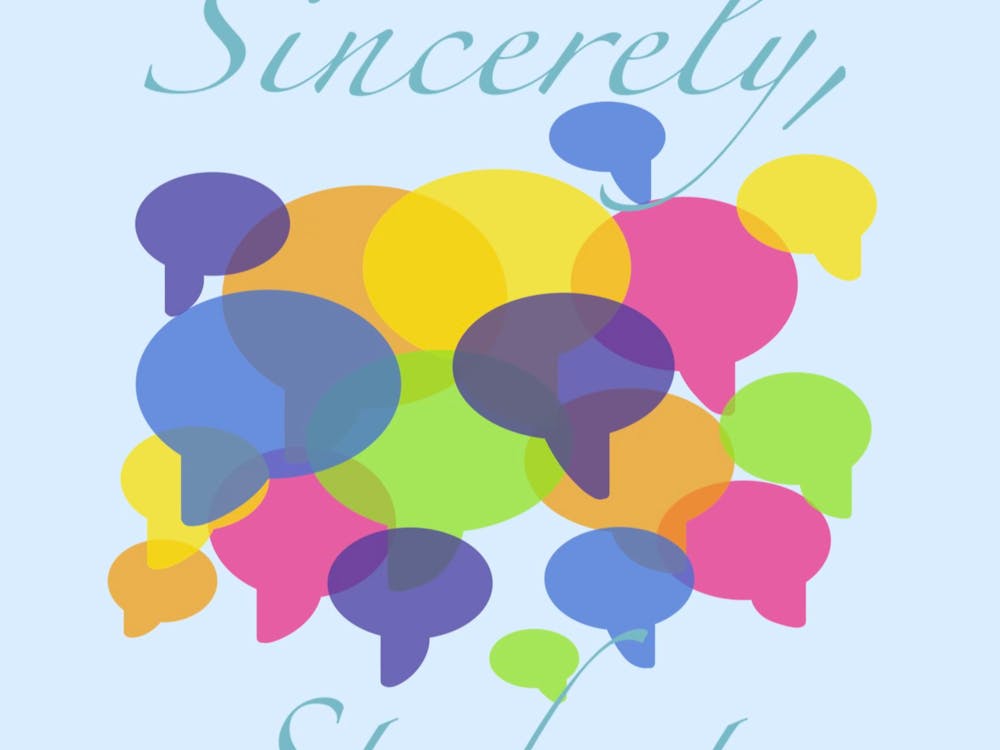Richelle Frabotta is not one to shy away from sex talk.
Frabotta, coordinator of the Sexuality Education Studies Center and professor in the department of family science and social work (FSW), is one of only three sexuality educators in the state of Ohio, licensed by the American Association of Sexuality Educators, Counselors and Therapists (AASECT).
A search for her name on Miami University’s website brings up a two-part podcast called “Being Open and Honest About Sexuality,” where she engaged “openly and frankly” in conversations about sex and sexuality.
With this background, revamping her FSW 365: Family Life Sexuality Education Across Cultures class into a mandatory sexual health class for sophomores seems like the next logical step.
“I want to take [the class] and modify it into something more specific to our campus,” Frabotta said, “that would ultimately [decrease] sexual violence.”
Frabotta said she wants the class to be for sophomores because they are in a “better position” than first-years.
“First-year students are [overwhelmed],” she said. “By second semester, they’re starting to acclimate, but sophomores have moved into more personal agency and autonomy. They’re past trying to learn how the system works, so I think they’re more ready to deal with difficult questions.”
Frabotta has been teaching FSW 365 for 10 years. During class, she conducts what she calls “one-minutes,” where students anonymously free-write about their knowledge and desires regarding sexuality. “I’ve taken what a decade of 20-year-olds know about sexuality and created a curriculum from that.”
Her curriculum also comes from data collected by her colleague Rose Marie Ward, professor and associate dean of the graduate school, and The Future of Sex Ed, an organization aiming to improve comprehensive sex education in public schools.
“With all those sources, I said, ‘Hey, wouldn’t it be great if every single sophomore on our campus could have this [education of] communication, connection and community?’” Frabotta said.
Even though most students at Miami have taken some sort of health class in middle or high school, Frabotta said it is often not enough.
“Comprehensive sexuality education does not exist within the United States,” she said. “Since 1997, the United States government has only paid for abstinence-only education.”
Enjoy what you're reading?
Signup for our newsletter
The Guttmacher Institute released a report about the sex education adolescents and young adults receive. Those who have received abstinence-only — or sexual risk avoidance — education are at higher risk for STIs, pregnancy and an early sexual debut.
Schools that promote a more comprehensive sex education often don’t have the adequate resources, asking teachers from others fields to teach.
“Health teachers [don’t seem to] exist anymore,” Frabotta said, “and even when they did, they didn’t have the training that I have. You wouldn’t ask a social studies teacher to teach geometry.”
Senior public health major Micailah Guthrie got her sex education from her high school’s physics teacher.
“Because he had something to do with science, they made him the health teacher,” she said.
Though her teacher didn’t emphasize abstinence-only, Guthrie said the class content was still limited.
“It wasn’t extensive at all,” she said. “Other people learned ‘don’t have sex at all,’ and even though that wasn’t my experience, I also wasn’t given information that could have helped me.”
“[Miami students] are super well-resourced, well-educated and enthusiastic about changing the world,” Frabotta said, “but don’t know what a g-spot is.”
Rebecca Baudry Young, director of the Office of Student Wellness, said she supports the idea of the class.
“Students come to Miami from many different high schools and backgrounds, and they may not have had the same type of sexual education,” she said. “This allows them an opportunity to all get the same baseline information so we can continue these types of conversations on campus.”
Guthrie said she hears a lot of concerning language regarding “hook-up culture” on Miami’s campus. “Sex ed is not just about health,” she said. “It’s about consent and what to do in situations where there may be a gray area.”
Sophomores enrolled in the class would learn about gray areas regarding consent; effective communication skills before, during and after sexual encounters; relationships; basic anatomy and physiology; conception and contraception.
“I think it’s absolutely a great idea,” Baudry Young said. “I’m excited about the opportunity for students to learn about healthy sexual identities and relationships.”
Baudry Young stressed the importance of having proper vocabulary. “A lot of times, students have a hard time saying what they want out of a sexual encounter or relationship,” she said. “Having an opportunity for students to become more comfortable with communication would help them have good, positive experiences.”
Though no concrete plans have been made to get the revised class up and running just yet, Frabotta is still enthusiastic about the possibility.
“In a perfect world, I wouldn’t have a job,” she said. “I want to provide an opportunity for super smart, well-resourced, overachievers to have a chance to [learn about] being a human.”




